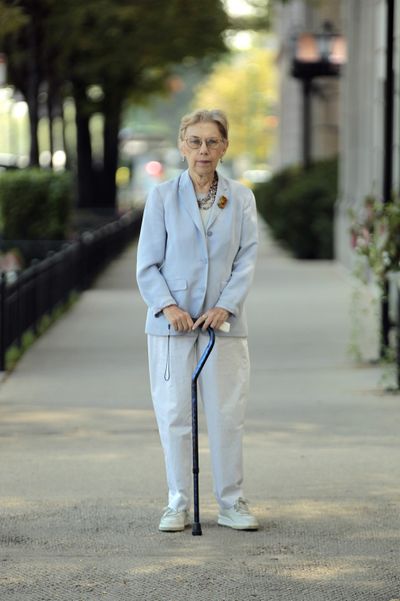Broken retirement dreams

CHICAGO – A decade ago, Christopher Thornton, a high-level recruitment specialist, thought he would retire in 2012. He envisioned traveling, volunteering, maybe working part time just for fun.
But those retirement dreams have been dashed. Since the economic downturn, his pricey Chicago town house has lost nearly a fifth of its value. He said his investments, though slowly recovering, at one point had been gouged by 45 percent.
Still, Thornton, 59, counts himself among the lucky ones. He’s seen too many friends lose their jobs and their health care, and exhaust their savings.
“Every morning I wake up and I fear I might be next, and it’s unsettling,” he said. “At the beginning of your career, you think there’s a start date and an end date. And now for a lot of people in my generation, there’s no end date in sight.”
Americans of every generation are readjusting their expectations in the wake of a devastating recession. And none more so than the nation’s baby boomers, who are reaching the traditional retirement age and finding it means only more uncertainty and more work.
Many are scared, but others are angry. They played by the rules, had successful careers, cared for their families and sacrificed for retirement. Then the recession ate away at their investments and home value, and in some cases swallowed up their jobs. Now comes an election in which Medicare, Social Security and other entitlement programs are on the table, as well as fundamental questions of whether government should scale back its role in providing a safety net for its citizens.
As baby boomers scramble to recoup their losses, perhaps what has eroded most is their confidence and faith in the American dream. And many aren’t sure Washington has the ability or will to restore either – despite the many campaign promises aimed at this huge group of voters.
Steven Sass, associate director of the Center for Retirement Research at Boston College, said the job picture for older workers has undergone a major transition, and politicians, employers and employees have not yet adjusted.
“What has happened is really shocking,” Sass said. “In 1983, once you got to age 50, about 68 percent of all full-time workers stayed in the same job until retirement. You didn’t leave unless you were fired.”
But in recent years, only half of workers have retired from the same company that employed them when they were 50.
“You have people who planned and scraped and saved and denied themselves and sacrificed for the future, and it all blew up in their face,” said Isaiah Woods, 66, who hasn’t worked full time for an employer since he was laid off from a Franklin Park, Ill., security firm in April 2010.
Experts said baby boomers had hoped to take their parents’ retirement model and tweak it upward. But what they’re finding is something broken altogether.
“It’s infuriating,” said Barbara Susin, a financial adviser who has her own Chicago-based financial firm. At 72, she said she continues to work because she wants to – and because she has to.
“Retirement is dead unless you have a couple of million dollars in your retirement savings account,” Susin said. “When you have no guarantees and your retirement is based on the market, you’re in this little boat being buoyed up and down, and you’re scared as hell you’re going to drown.”
Susin said her generation was taught that the retirement model was a three-legged stool, made up of personal savings, an employer-based retirement plan and Social Security.
“Two of those legs have already been whacked from under us, and if Social Security becomes market-based, there goes the third leg,” Susin said. “The good news is that doctors can help you live longer, but our retirement system wasn’t built for longevity.
“This is setting a lot of people up for poverty in old age.”
Financial analysts recommend that older workers plan for 20 years in retirement and have about a year’s salary for each year out of the workforce. But that’s becoming more difficult to manage.
Sass, the Boston College retirement expert, said although the 6.2 percent unemployment rate for workers 55 and older is less than the overall 8.3 percent rate, a sound economy is critically important for older workers.
“Younger workers have time to make up their losses,” he said. “But for older workers, this economy can cook their finances for decades to come and it affects how they feel about their future prospects.”